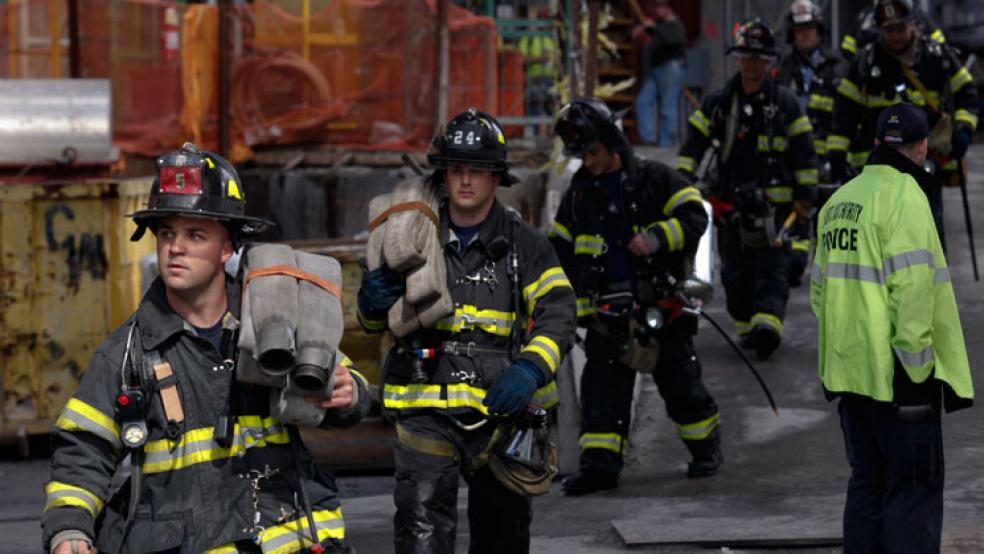As part of a cover story for The Atlantic on America’s national security, author Steven Brill has found a leading candidate for “the most wasteful post-9/11 initiative” — something called the First Responder Network Authority, or FirstNet.
If you've never heard of FirstNet, you're not alone.
Established in 2012 as an independent authority within the National Telecommunications and Information Administration (NTIA), FirstNet would “build, operate and maintain the first high-speed, nationwide wireless broadband network dedicated to public safety.” The idea was pitched as one of the federal government’s solutions to communication problems for emergency personnel during the 9/11 attacks. Congress originally allocated $7 billion in financing for construction of the network. The estimated cost is now as high as $47 billion, according to the Government Accountability Office.
Related: Here’s Why It Will So Hard for Trump or Clinton to Rebuild America
Despite those spiraling costs, the agency apparently hasn’t been too concerned with how long it will take to complete the project. FirstNet is expected to award a contract to a private partner for the deployment of its network by early November. After that, states will be allowed to decide whether to join the network or set up their own systems that will be interoperable with FirstNet. In short, after years of government red tape and missteps by the agency itself, the project is still years (and billions) away from completion, as Brill reports.
Brill also suggests that the bureaucratic slog isn’t the only problem with FirstNet. Technological advances may have obviated the need for such a network in the first place — if such a need ever really existed. Based on his research, Brill writes that the basis of FirstNet’s creation is a false narrative wrapped around “part tragedy and part urban myth.”
On 9/11, communications between emergency personnel broke down as a result of the “inability of fire commanders to communicate with their troops” because repeater devices that enable two-way radios to penetrate the World Trade Center’s walls and work from its high floors failed, Brill writes. As that story became oversimplified, attention was focused on whether the cops and firefighters who responded to the attack should have been able to communicate with each other on interoperable radios.
Related: Federal Civilian Workforce Soars to 2.79 Million After Years of Restraint
But advances in cellphone technology have largely made this a non-issue, Brill argues, as smartphone apps combined with the designation of prioritized bandwidth for first responders in emergencies could solve the problem:
“There are certainly some situations when interoperability is necessary, especially in major metropolitan areas, where first responders from multiple jurisdictions will swarm a dire emergency. But New York, Los Angeles, and other large jurisdictions have long since established protocols and bought technology that solve the problem. The combined forces are now able to plug into one another’s systems without waiting for FirstNet’s grand solution, which would allow all first responders to communicate over an emergency-response system established with specially reserved bandwidth across every inch of the 50 states.”
FirstNet’s president told Brill that the network will enable emergency personnel to do much more than just talk to each other — they could send building plans or medical records, for example. And he argued for the need to set aside exclusive bandwidth for first responders, an idea at the core of the FirstNet project.
Related: The $400 Million Flint Water Scandal Is Just the Beginning
But it's clear that the government and whichever private telecom business wins the FirstNet project still face other challenges ahead. Selling the FirstNet network to emergency personnel will be a difficult task, especially when larger cities have already established protocols, Brill says.
Even if the network does get built, it may not be up and running until at least 2026.




